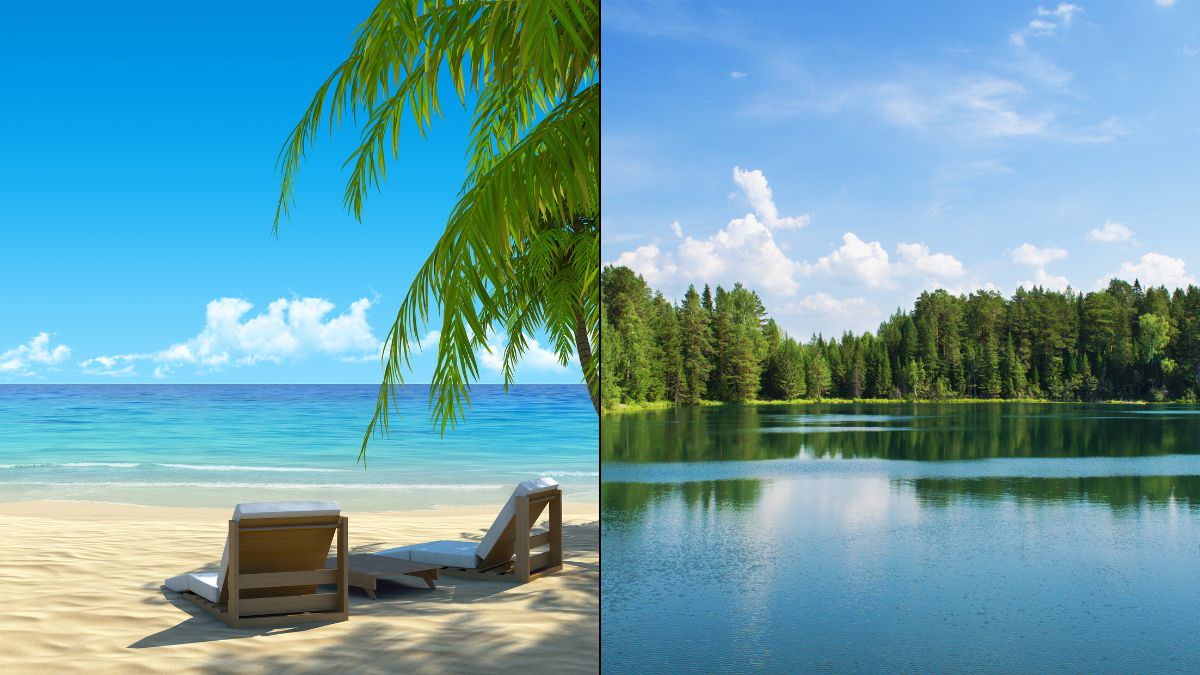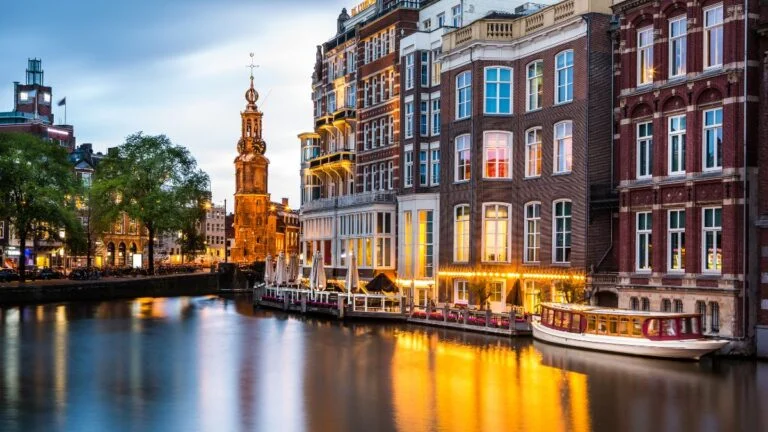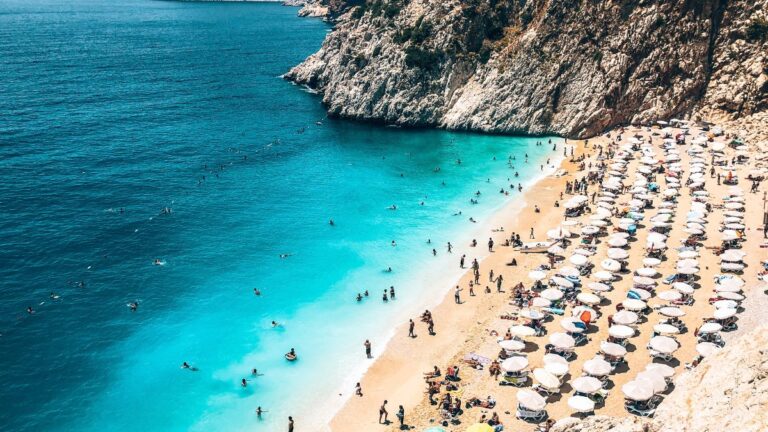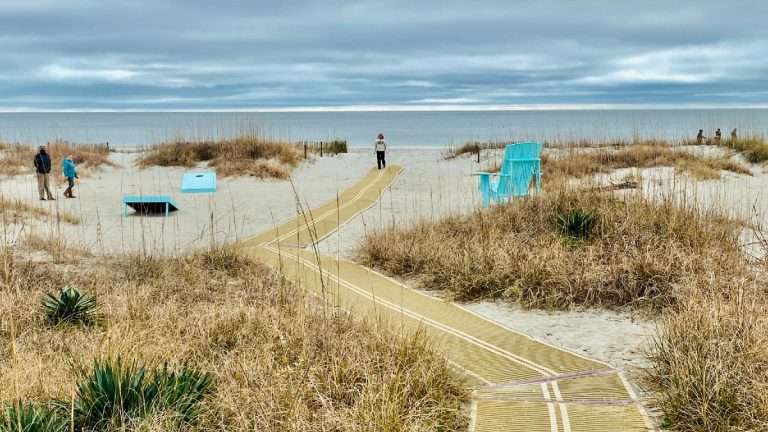Beach vs. Lake: The Ultimate Guide to Choosing Your Perfect Waterfront Getaway

As participants in Amazon Associates and other programs, we earn from qualifying purchases. This comes at no additional cost to you. For more details, see our Affiliate Disclosure.
Deciding between a beach or a lake for a getaway? It’s the classic vacation dilemma. Beaches offer waves and endless horizon, while lakes promise tranquil waters and cozy charm. Our guide is here to weigh in on the debate and help you figure out which one suits your getaway groove best.
Setting the Scene: Beach Chill vs. Lake Leisure
When it comes to choosing a place to unwind and take in some fresh air, the beach and the lake set distinctly different scenes. On one hand, beaches are often associated with a certain kind of chill – think sunbathers lounging on sandy shores, surfers chasing waves, and children building sandcastles. The soundtrack is typically the steady hum of ocean waves meeting the shore, punctuated by seagulls and the buzz of beachgoers.
On the other hand, lake leisure has its own rhythm. Lakes often exude a sense of tranquility with their still waters. Here, leisure comes in the form of canoeing on glassy surfaces, fishing in quiet coves, or simply sitting on a dock and dipping your toes into the water. The scene is usually quieter, with nature’s chorus taking the lead – the call of loons, the rustle of leaves, and the gentle lap of water against the dock.
The decision between beach chill and lake leisure comes down to the type of experience you’re looking for: the vibrant, energetic life of the beach or the calm, restorative embrace of the lake.
What’s on the Agenda? Beach vs. Lake Activities
The activities available at beaches and lakes can significantly influence your choice. A beach typically comes to life with a blend of high-energy and laid-back pastimes. For those who love a good adrenaline rush, surfing, jet-skiing, and beach volleyball are staple offerings. If relaxation is your goal, sunbathing, casual swimming, or strolling along the shore at sunset might be more your pace.
Lakes, while typically quieter, also host a variety of activities but with a different flavor. Kayaking and paddleboarding are serene ways to explore the water without the waves. Fishing is another popular lake activity, offering both excitement and a meditative calm. Hiking around the lake or having a picnic by the water’s edge provides a more grounded experience compared to the often sandy and windy conditions of a beach.
So, whether you’re in the mood for the vibrant, bustling energy of the beach or the soothing, low-key atmosphere of the lake, both environments offer a range of activities to fill your agenda with memories in the making.
Sleeping Options: Under the Stars or by the Shore?
When night falls, where you tuck in can make all the difference in your waterfront vacation. At the beach, accommodations tend to embrace the seaside decor, with options ranging from high-end resorts to charming beachfront bungalows. For those who love to fall asleep to the sound of the waves, camping on the sand under a blanket of stars is an unforgettable experience, albeit one that requires checking local regulations.
Lakes offer a different kind of overnight experience. Lakeside cabins nestled among the trees are popular, giving you that rustic, homey feel that’s perfect for family trips or romantic getaways. Camping is also a common choice, with many lakes surrounded by parklands that provide scenic campsites. Whether it’s a tent pitched in a quiet forest clearing or a cozy cabin with a fire pit outside, lakeside sleeping options tend to be more about seclusion and connecting with the natural surroundings.
Your choice between beach and lake sleeping options will depend on your personal preference for either the sound of crashing waves or the quiet whispers of a lake at night.
Best Time for a Trip: Seasonal Tips for Beach and Lake Visits
Choosing the right season for your beach or lake visit can greatly enhance your experience. Beaches typically shine brightest in the summer when the sun is strong, and the water is inviting. However, they can also be delightful in the off-season if you prefer a more solitary experience with cooler weather. Lakes are ideal in the late spring through early fall when the water is warm enough for swimming but not too hot for hiking and other land-based activities. In both settings, the shoulder seasons offer fewer crowds and often more affordable rates.
Here are some seasonal tips to consider:
- Summer at the Beach:
- Optimal for water sports and swimming.
- Beach towns come alive with festivals and events.
- Be mindful of peak season crowds and higher prices.
- Off-Season Beach Visits:
- Quieter shores and unique winter coastal beauty.
- Possible deals on accommodation and attractions.
- Water and weather may be too cool for traditional beach activities.
- Late Spring to Early Fall for Lakes:
- Perfect for comfortable swimming and water activities.
- Campgrounds and cabins are in full swing.
- Ideal weather for fishing, hiking, and enjoying wildlife.
- Shoulder Season at the Lake:
- Fewer visitors and a peaceful atmosphere.
- Great for enjoying the scenic beauty as nature changes.
- Cooler temperatures ideal for active adventures and cozy nights.
Exploring Nature: Beaches and Lakes Up Close
Exploring the natural environments of beaches and lakes can be profoundly different experiences. Beaches offer a vast expanse where the ocean meets the land. Walking along the shoreline, you might encounter a variety of birds like sandpipers or seagulls and marine life such as crabs scuttling below the sand or dolphins playing in the waves. The open skies at beaches also allow for unobstructed views of sunrise or sunset, providing a breathtaking backdrop for nature photographers and enthusiasts.
In contrast, lakes are often surrounded by diverse ecosystems. Depending on the lake, you may find yourself in a forested area with the chance to spot woodland creatures, from deer to foxes, or in a mountainous region with a completely different set of flora and fauna. The lake’s edge is a place to observe the gentle interactions of wildlife, such as ducks gliding across the water or fish jumping. With less salty air and typically more vegetation, lakes can also be a haven for those interested in botany and bird-watching, offering a variety of species not commonly found at the beach.
Each environment offers unique opportunities for nature lovers to get up close and appreciate the distinct beauty and biodiversity:
- Beach Exploration:
- Seashell and fossil collecting along the shore.
- Watching marine life in tide pools or during snorkeling.
- Observing migratory birds during certain seasons.
- Lake Discovery:
- Canoeing or kayaking for a quiet approach to observe lakeside wildlife.
- Fishing as a way to engage with the aquatic ecosystem.
- Hiking around the lake to witness the variety of plants and animals in different terrains.






